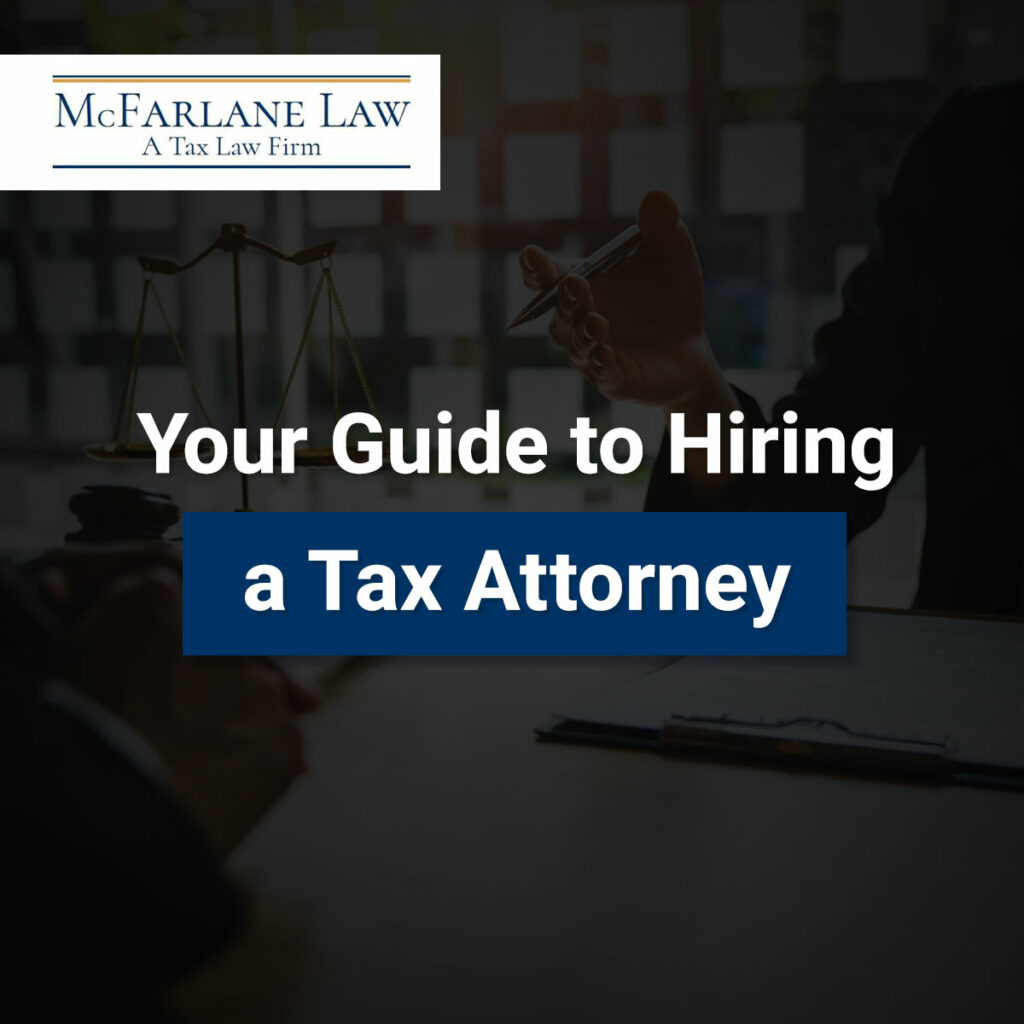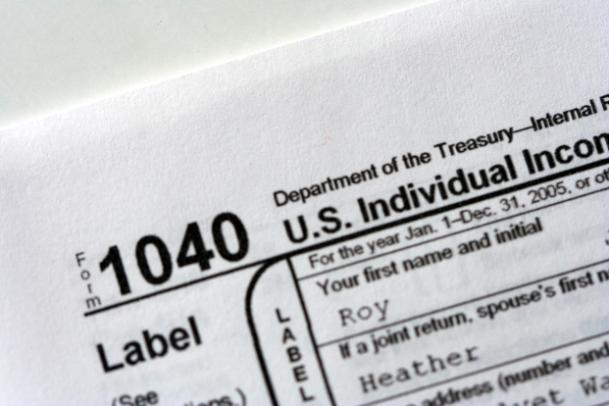Your Guide to Hiring a Tax Attorney

If you are concerned about tax issues, or if you haven't filed your taxes in some time, or you would like to learn more about your rights and your options in responding to IRS or ADOR questions, you need to contact an experienced Tax Attorney in your area.
There are few legal topics more complex than tax law, the IRS or ADOR internal policies, and tax procedure. Tax law can be intimidating. Ignoring notices or letters can bring serious financial consequences.
Responding to IRS or ADOR agents or officers without professional advice can create far more damage and adverse consequences than the nickel you save when you respond yourself. Whatever your tax-related legal issue, having an experienced attorney on your side can help ensure that your personal and financial interests are protected to the fullest extent possible.
How a Tax Attorney Can Help You
At your first meeting, your attorney will gather facts and information from you, evaluate all correspondence and aspects of your tax issue with you, identify your options, and explain what you can expect. If your tax issue requires litigation, your experienced tax attorney can represent you in state or federal tax court. If your case is administrative in nature, an experienced tax attorney can negotiate a reasonable resolution to your tax problem. Do not go it alone! Handling a tax matter without the knowledge and understanding of policies, procedures and the law can damage your potential for a reasonable resolution. Tax attorneys are worth their fees!
5 Questions to Ask a Tax Lawyer Prior to Engaging Legal Services
You want to hire a tax lawyer who’s a good fit for your case. The lawyer’s personality is important because you will be interacting with him/her over the course of the representation (and the IRS does not settle case quickly). You will be entrusting the attorney with personal facts that need to be kept sacrosanct. At the same time, you want an attorney who will interact with the IRS/ADOR agents and officers, but who will also fight to achieve a favorable result.
So what questions should you ask a tax attorney? Here are a few you may want to consider:
- What is your experience in tax law and identify 3 cases similar in facts and law that you have resolved for your client? Note that not every tax attorney will be knowledgeable in every type of tax-related legal issue, so it’s important to find an attorney who specializes in, or has handled cases in, the area you’re looking for.
- What are your legal fees and how do you communicate with clients over the course of the representation? Asking about the expected fees and how the attorney communicates over the course of the representation allows you to estimate the costs and make a budget to pay the attorney fees, but also any tax liabilities and other costs. Get your fee agreement in writing.
- Ask if the attorney is available to adequately handle your matter or can he/she direct you to another attorney who might be available.
- Are there any red flags in my case? Since lawyers are trained to spot legal issues that non-lawyers may not catch, you should ask if there are any tax problems you may have missed that could get you in trouble.
- Do you practice in other areas of law and what is the percentage of tax to the other areas practiced? Tax law can overlap with other areas of law, like probate or business law. If tax law is only a very small part of the lawyer’s practice, then you might want to consider hiring a different attorney who is more experienced or can dedicate more time to your case.
So, Do You Need a Tax Lawyer or a CPA?
Many small businesses and some individuals use Certified Public Accountants or Enrolled Agents to prepare their returns. A CPA or an experienced EA are able to respond to IRS inquiries and audits and handle lower level administrative hearings. Sometimes, however, it is best to hire a tax attorney from the start, especially when there is a situation that requires an appeal or legal issues that might require Tax Court resolution. But there are times when a small business or individual needs an attorney, not just a good CPA. Here are several events where you should consider hiring a tax lawyer:
- You’ve received a Notice of Deficiency from the Internal Revenue Service. While a CPA or EA can appear in Tax Court, and while they may have the necessary tax knowledge to win your case, they may lack one essential piece of the puzzle: the ability to effectively present your case. Litigation involves more than tax law knowledge. 50% of the trial is evidence and procedure. An experienced tax attorney is best-suited to take on a tax court case.
- Your business or individual tax returns are being audited and there are legal questions, not merely substantiation issues. If the IRS or ADOR has noticed you of their intent to review your payroll tax, your business expenses, your individual income or expenses, ask your CPA or return preparer if there are issues that might require the guidance of an experienced tax attorney. Get that analysis up front and act on it. Being in front of the wave is much better than trying to clean up a mess after it occurs.
- Your business model contemplates fast growth or the need for funding. If you’re contemplating high growth, you want to form your business properly from day one. This is also important if you plan to try for venture capital funding or other forms of raising large sums of money. Also, if you plan to merge with another entity, you should definitely seek the help of a tax lawyer to help you plan out that merger, even if it’s between two small businesses.
- You have received a visit from a revenue officer. When a revenue officer knocks on your door or visits your business unannounced, you need to immediately contact your tax attorney, who can then assess the situation and either refer the matter out to your return preparer or CPA, or engage that person under a Kovell Agreement (to protect work product and attorney-client privilege). Do not answer any questions, but rather politely tell the revenue officer that you will fully cooperate and respond to his questions, but in the presence or through your tax attorney.


